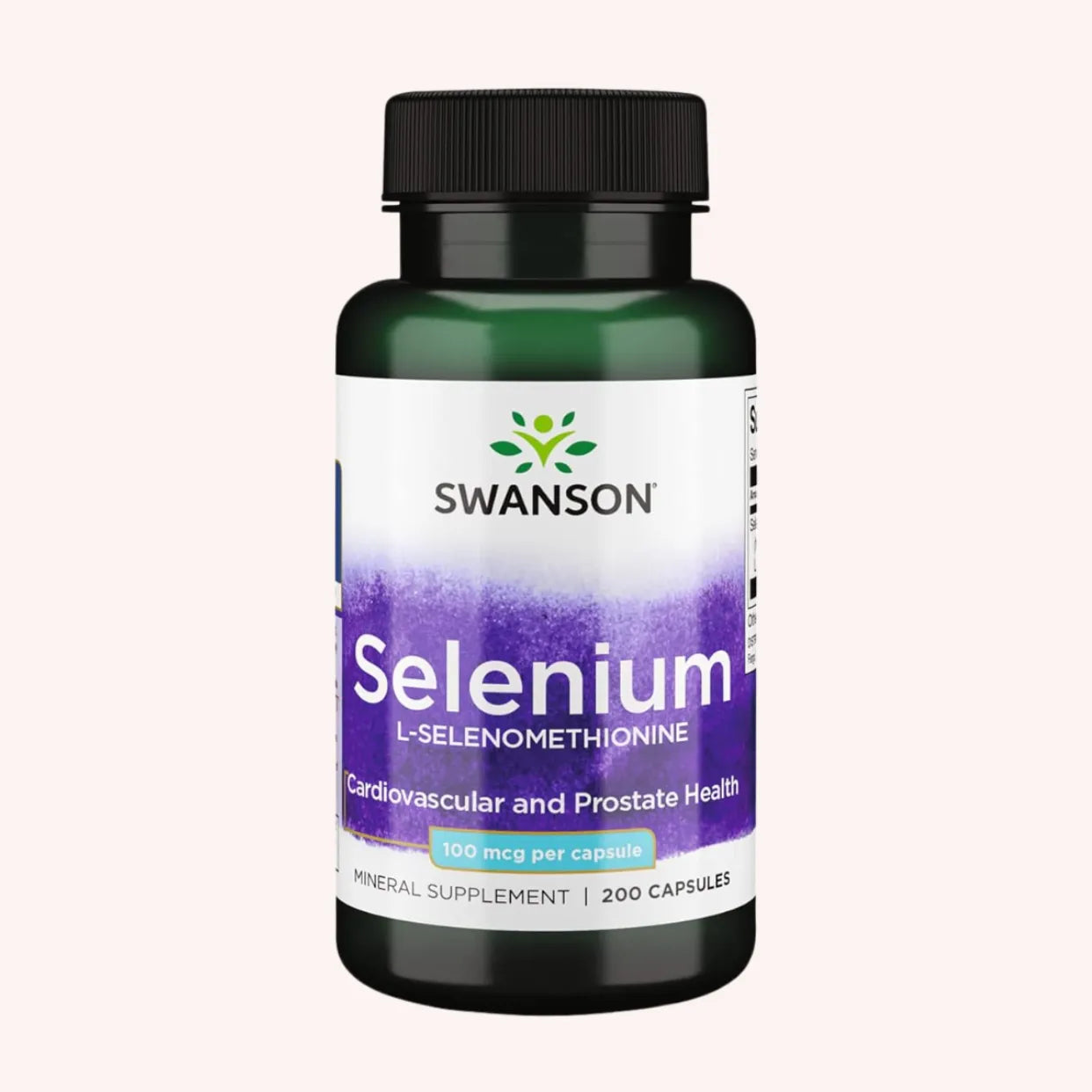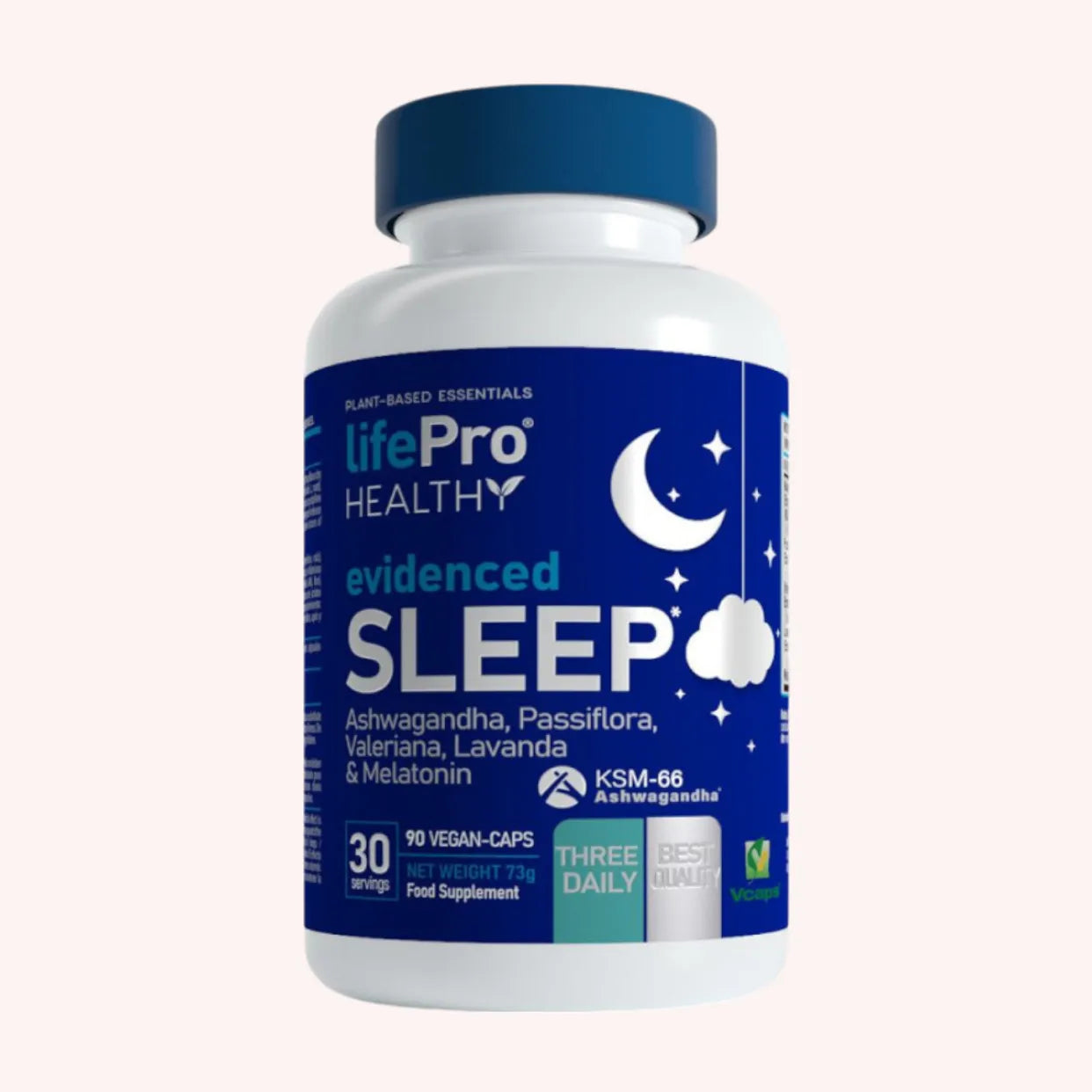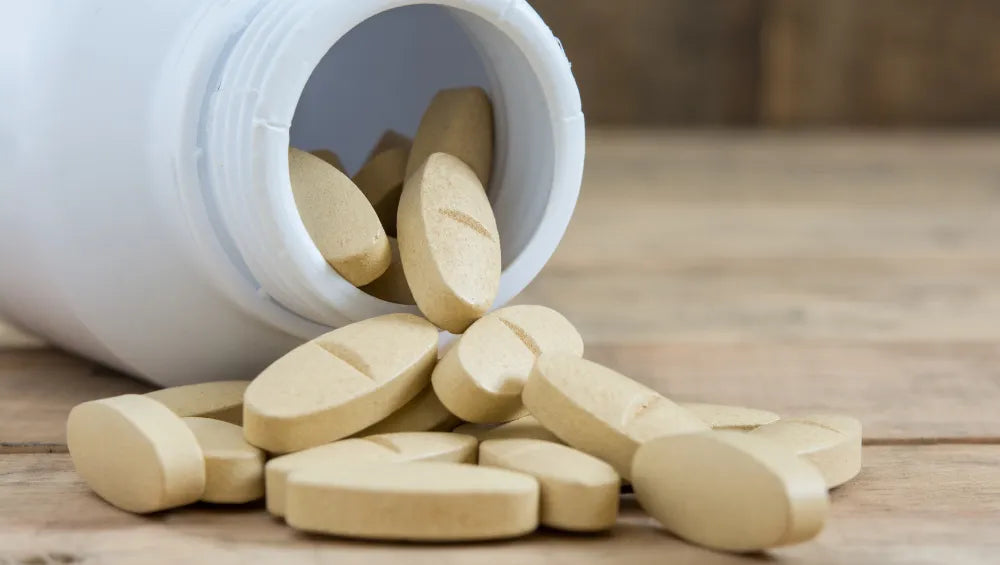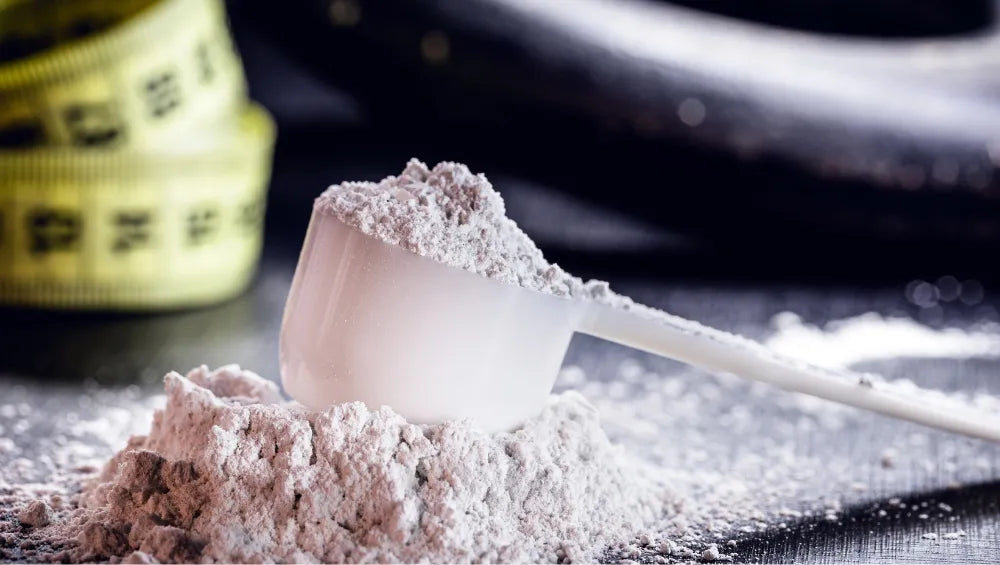An antioxidant ( AOX ) is a molecule that slows down or prevents the oxidation of other chemicals when they come into contact with them. They play a role in improving athletic performance and muscle recovery. If you are a bodybuilding enthusiast or endurance athlete, antioxidants are important to optimize your results.
Here, we'll guide you through the benefits of antioxidants, their food sources, and precautions to take when supplementing.
Properties and role of antioxidants
Antioxidants are essential for protecting the body against damage caused by free radicals. Free radicals are unstable molecules produced in large quantities during metabolic processes such as intense physical exercise.
These reactive compounds can damage cells, proteins, and DNA, which can hinder muscle recovery and decrease athletic performance. By neutralizing these free radicals, antioxidants help maintain cellular integrity, promote recovery, and improve athletic performance.
Mechanism of action of antioxidants
Free radicals, due to their chemical instability, seek to combine with other molecules to stabilize themselves. This process, called oxidative stress , can lead to significant cellular damage, including the oxidation of lipids, proteins, and DNA. Antioxidants intervene by neutralizing these free radicals, either reducing them or stabilizing them, thus preventing oxidative stress .
Antioxidants work in several ways:
- Proton donation: Some antioxidants, such as vitamin C, can donate an electron to a free radical without becoming unstable themselves, thus neutralizing the radical.
- Direct neutralization: Antioxidants such as superoxide dismutase (SOD) directly convert free radicals into less reactive molecules.
- Repair and elimination: Other antioxidants contribute to the repair of oxidative damage or the elimination of products damaged by oxidation.
Types of antioxidants
There are two main types of antioxidants, each with specific sources and mechanisms of action:
Endogenous antioxidants
Endogenous antioxidants are naturally produced by the body and are essential for protecting cells against free radicals. Some of the main endogenous antioxidants include:
- Glutathione: It is one of the most powerful antioxidants, present in all cells. It plays a key role in the detoxification of free radicals and heavy metals.
- Superoxide dismutase (SOD): This enzyme catalyzes the conversion of superoxide, a particularly reactive free radical , into hydrogen peroxide, which is then broken down by other enzymes such as catalase.
- Catalase: It converts hydrogen peroxide, a potentially harmful byproduct of cellular metabolism, into water and oxygen.
- Lipoic acid: Present in mitochondria, it plays a fundamental role in energy metabolism and the detoxification of free radicals .
- Bilirubin and ferritin: These act as antioxidant buffers by binding and neutralizing free radicals.
Exogenous antioxidants
Exogenous antioxidants come from food and are equally important for supplementing the body's antioxidant defenses. Some of the main exogenous antioxidants include:
- Vitamin C : Also known as ascorbic acid , it is found in many fruits and vegetables, including citrus fruits, kiwis, and peppers. It is particularly effective at neutralizing free radicals in aqueous environments.
- Vitamin E : This fat-soluble vitamin is found in nuts, seeds, and vegetable oils. It protects cell membranes from oxidative damage by interacting with free radicals in lipid environments.
- Carotenoids: These are natural pigments found in colorful fruits and vegetables, such as carrots and spinach. Beta-carotene, lutein, and zeaxanthin are some examples of carotenoids with antioxidant properties.
- Polyphenols: Found in fruits, vegetables, tea, coffee, and red wine, polyphenols, like flavonoids and tannins, have powerful antioxidant properties.
- Zinc and selenium : These trace elements are essential for the proper functioning of certain antioxidant enzymes, such as superoxide dismutase and glutathione peroxidase.
Antioxidant needs in athletes
Physical exercise increases oxygen consumption, which increases the production of free radicals . Although regular exercise strengthens the body's natural antioxidant defenses, specific antioxidant needs are not necessarily higher than for a sedentary person.
However, a balanced diet rich in antioxidants is fundamental to supporting athletic performance and recovery.
The benefits of antioxidants for athletes
For athletes, antioxidants offer several benefits:
- Improved performance: By neutralizing free radicals, antioxidants help reduce fatigue and prolong exercise.
- Accelerated recovery: They help reduce post-exercise muscle soreness and damage.
- Positive Health Effects: Adequate consumption of antioxidants can strengthen the immune system and improve overall health.
However, it is important to consume antioxidants in appropriate amounts. Excessive doses, especially in the form of a health supplement, can disrupt positive adaptations to training and decrease performance.
Food sources of antioxidants
To maximize the benefits of antioxidants, it is recommended to favor natural food sources:
- Fruits: Blueberries, raspberries, blackberries, oranges, kiwis.
- Vegetables: Spinach, broccoli, carrots, peppers, sweet potatoes.
- Nuts and seeds: Almonds, walnuts, sunflower seeds.
- Other foods: Dark chocolate, coffee, turmeric, green tea.
These foods contain antioxidants like vitamins A, C, and E, polyphenols, and carotenoids, which are essential for health and athletic performance.
Antioxidant food supplements
Although many athletes use immune-boosting supplements with antioxidants, their effectiveness is often disputed. Vitamin C and E supplements, in particular, have not been shown to have significant benefits for athletic performance and can even be counterproductive when consumed in excess.
Potential adverse effects of high doses of antioxidant supplements include:
- Increased muscle fatigue
- Delayed recovery
- Disruption of muscle growth
- Decreased insulin sensitivity
In theory, these supplements should protect against free radicals, but studies often show decreased performance with excessive supplementation. For example, high doses of vitamin C (more than 1 g per day) can impair training adaptation.
Antioxidants after sport
Consuming antioxidant-rich foods after exercise can help improve recovery. Here are some examples of antioxidant-rich post-workout meals:
- Cottage cheese with oatmeal, blueberries and walnuts.
- Smoothie made with orange, carrot, lemon, kale, sunflower seeds and beetroot.
- Grilled salmon with red beans, brown rice and spinach.
- Mixed salad with eggs, beetroot, quinoa, tomato, avocado and arugula.
- Grilled chicken breast with sweet potato, red pepper, broccoli and almonds.
These meals should also provide sufficient protein and carbohydrates to support muscle recovery and energy intake.
Increase your intake of antioxidants
To get more antioxidants into your diet, here are some simple tips:
- Eat a variety of fresh fruits and vegetables at every meal.
- Eat snacks rich in antioxidants such as nuts, dark chocolate or berries.
- Use spices and herbs rich in antioxidants, such as turmeric.
- Make smoothies with fruits and vegetables.
- Eat dark chocolate instead of milk chocolate.
- Incorporate legumes like beans and lentils into your diet.
- Add oatmeal to your breakfast or yogurt.
- Consume sunflower seeds in your dishes.
- Drink antioxidant juices like pomegranate juice after exercise.
Antioxidants are essential for athletes looking to optimize their performance and recovery. A diet rich in fruits, vegetables, nuts, and other natural sources of antioxidants is the best way to ensure adequate intake without the risks associated with excessive supplementation. By following these practical tips and incorporating antioxidant-rich foods into your daily diet, you can take full advantage of their benefits for your health and athletic performance.
Sources:
- Antioxidant supplements and endurance exercise: Current evidence and mechanistic insights: https://pubmed.ncbi.nlm.nih.gov/32127289/
- Antioxidant Supplementation Hinders the Role of Exercise Training as a Natural Activator of SIRT1: https://pubmed.ncbi.nlm.nih.gov/35631233/
- Potential harms of supplementation with high doses of antioxidants in athletes: https://www.sciencedirect.com/science/article/pii/S1728869X22000351
- Antioxidant Supplementation and Adaptive Response to Training: A Systematic Review. : https://pubmed.ncbi.nlm.nih.gov/31267859/
- Effect of Antioxidant Supplementation on Markers of Oxidative Stress and Muscle Damage after Strength Exercise: A Systematic Review: https://pubmed.ncbi.nlm.nih.gov/35162826/
- Dietary Antioxidants for the Athlete: https://pubmed.ncbi.nlm.nih.gov/16822339/
- Antioxidants and Exercise Performance: With a Focus on Vitamin E and C Supplementation: https://pubmed.ncbi.nlm.nih.gov/33203106/
- Antioxidant Activity of Pomegranate Juice and Its Relationship with Phenolic Composition and Processing: https://pubmed.ncbi.nlm.nih.gov/11052704/
- Nuts, especially walnuts, have both antioxidant quantity and efficacy and exhibit significant potential health benefits: https://pubmed.ncbi.nlm.nih.gov/22187094/
- Antioxidant Activity and Multi-Elemental Analysis of Dark Chocolate: https://pubmed.ncbi.nlm.nih.gov/35627015/
- A Review of Health-Beneficial Properties of Oats: https://pubmed.ncbi.nlm.nih.gov/34828872/
- Antioxidant Potential of Curcumin—A Meta-Analysis of Randomized Clinical Trials: https://pubmed.ncbi.nlm.nih.gov/33172016/
- Exogenous antioxidants—Double-edged swords in cellular redox state: https://pubmed.ncbi.nlm.nih.gov/20972369/
- Effects of Acute Vitamin C plus Vitamin E Supplementation on Exercise-Induced Muscle Damage in Runners: A Double-Blind Randomized Controlled Trial: https://pubmed.ncbi.nlm.nih.gov/36364898/








